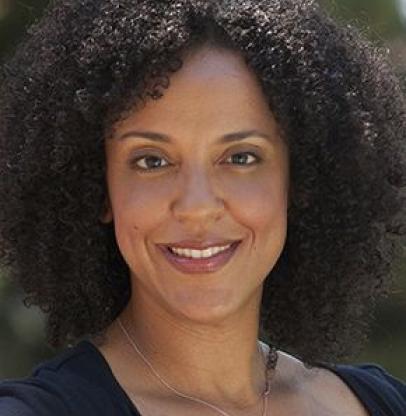September 2010

Janelle Scott was teaching at New York University two years ago when she saw an announcement for her dream job, a post at UC Berkeley devoted to educational disparities. “It was one of the rare times when you see a job listing that perfectly matches who you are and what you do,” says Scott, now an assistant professor with a joint appointment in the Graduate School of Education and African American Studies Department.
Berkeley recruited Scott to the Haas Diversity Research Center, formerly called the Berkeley Diversity Research Institute, an unprecedented scholarly endeavor that involves 12 faculty engaged in research related to equity, inclusion, and diversity. The research areas now include: educational disparities, health disparities, diversity and democracy, economic disparities, and Lesbian Gay, Bisexual, Transgender equity. The Evelyn and Walter Haas, Jr. Fund invested in five endowed chairs for the center as part of a five-year $16-million gift for the UC Berkeley Initiative for Equity, Inclusion, and Diversity in 2010.
Scott says she was drawn to the opportunity to contribute to her particular area of interest around politics, policy, and educational equity. In particular, her research focuses on the racial politics of public education, the politics of school choice, and the role of private sector actors in shaping public education. Scott edited School choice and diversity: What the evidence says (2005 by Teachers College Press) and is currently researching the relationship between philanthropy and school choice policy in urban areas.
Berkeley recruited Scott to the Haas Center’s educational policy cluster along with Na'ilah Suad Nasir, who served eight years on Stanford’s faculty.
Last spring, Scott and Nasir developed and co-taught “Research Advances in Race, Diversity, and Policy,” a course that gets to the heart of the educational disparities research cluster at the Haas Center. The class drew students from across many disciplines on campus, from cell biology to ethnic studies. “We were really pleased to see that the students represented the mission of the initiative,” says Scott, who will teach the course again this spring. “Students came together according to these shared interests.”
The course featured several high-profile and provocative speakers including Carol Lee, former president of the American Research Association, and pioneering Northwestern University professor; Angela Valenzuela, a leader in multicultural education issues from the University of Texas, Austin; and Vanessa Siddle Walker, an Emory University historian whose research focuses on segregated education in the south. Scott and Nasir also launched the Haas Diversity Research Fellows — a cadre of doctoral students studying race and education whom they plan to mentor.
Scott says that the Haas Center is an unprecedented opportunity to bring scholarly attention to equity and diversity issues. She emphasizes that groundbreaking scholarship has flourished at Berkeley for more than 40 years — laying a foundation for the promising and expansive research of the center.
“The research and scholarly activity has been going on much longer than this initiative,” says Scott. “But in many ways there hasn’t been a way to centralize that activity, to share that research, and to have that work be valued by the academy.”
Scott says the Haas Center provides an institutional home that creates new opportunities to generate publications, research, and outreach that is unprecedented on any campus. “This is powerful,” she says. “These are tangible and material resources, but the symbolism is also very important.” Visit diversity.berkeley.edu/hdrc for more information about the Haas Diversity Research Center and its affiliated faculty.




